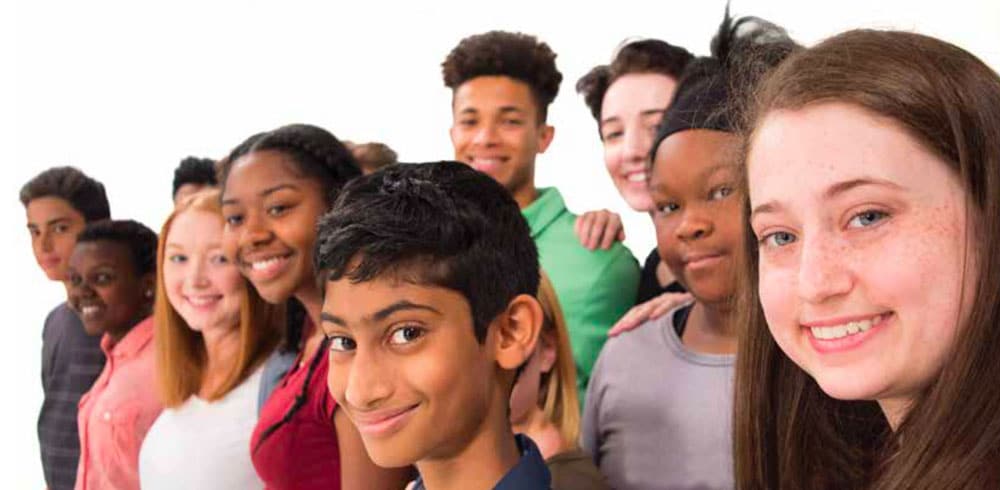2021 Legislation Focused on Pandemic Challenges for Children and Families
Print This Post
Photo courtesy of Voices for Georgia’s Children
by Erica Fener Sitkoff
Executive Director, Voices for Georgia’s Children
With the many challenges presented by the pandemic front-of-mind, from financial to academic, state leaders passed much legislation this session that will impact children and families. Several of these bills await the governor’s signature, who has the option to veto a bill until May 10.
Georgia has the fourth-highest number of uninsured children in the nation with 197,000 children uninsured, and, even with health care coverage, accessing care can be difficult as families face provider shortages, transportation barriers, and high costs. The legislature passed several pieces of legislation that aim to address these challenges—including bills that allow the state to automatically enroll approximately 65,000 eligible children in Medicaid (HB 163), increase insurer transparency (SB 80), and codify flexibilities that allow for telemedicine provision (HB 307), the value of which was amplified by COVID-19.
The legislature also passed several bills that support youth in challenging situations, by waiving technical college tuition for those in or adopted out of foster care (SB 107), increasing incentives to adopt children from foster care (HB 114), and recruiting more teachers to work in rural or low-performing schools (HB 32). A bill that would require the state to provide three weeks of paid parental leave for state employees and teachers (HB 146) also offers much-needed support to new parents and their children.
In 2020, the state budget was cut by approximately 10%. With better-than-expected state revenues since then, some of these cuts were able to be restored in the FY22 budget. The Department of Behavioral Health and Developmental Disabilities—a safety net provider of mental health and crisis services—saw $59 million restored that will be critical to strengthening our state’s overburdened behavioral health system. Additional funding reinforces a range of other health care system supports, including 188 additional primary care residency slots, two federally qualified health centers in rural areas, and $2 million to grow Georgia’s state-supported school-based mental health program.
What’s more, the pandemic underscored what the legislature already knew—that our state badly needs universal broadband—which led them to add a $30 million investment in broadband infrastructure between the Amended FY21 and FY22 budgets, a boon for both health care and education access.
Learning supports were not forgotten either, with 60% of education dollars cut last year restored and investments in Georgia’s Pre-K Program and the Georgia Division of Family and Children Services’ Afterschool Care Program. Funds were also restored for the Multi-Agency Alliance for Children’s highly successful educational support program for youth in foster care. Given that school resource officers are tasked with responding to students of all ages and varying needs, nearly $200,000 allocated for a statewide School Resource Officer training program in the Department of Public Safety is also welcome, because training is needed for restorative, developmentally appropriate responses to student behavior.
At Voices, we ended this session grateful for the restoration of funding, though keenly aware of what is still needed. Public supports are critical to children’s well-being. We are committed to building on this progress in partnership with you at Georgia Family Connection to fundamentally improve conditions for all Georgia’s children and families, following such a challenging year and beyond.
Read Voices for Georgia’s Children’s Top Issues for Children and Families: 2021 Legislative Session.
Read Voices for Georgia’s Children’s Barriers to Healthcare for Georgia’s Children.
Contact:
Bill Valladares
GaFCP Communications Director
404-739-0043
william@gafcp.org
Follow us on Twitter: @gafcpnews
Connect with us on Facebook.
Voices for Georgia’s Children is the only comprehensive policy and advocacy organization committed to improving the lives of children in Georgia. Voices is comprised of insiders, conveners and experts. The organization is pragmatic, data-driven, nonpartisan, and focused on equitable, comprehensive policy solutions for Georgia’s children. Voices’ work is framed in a holistic “whole child” perspective that allows the organization to identify how different policies impact children and to propose solutions that benefit children on multiple levels.
